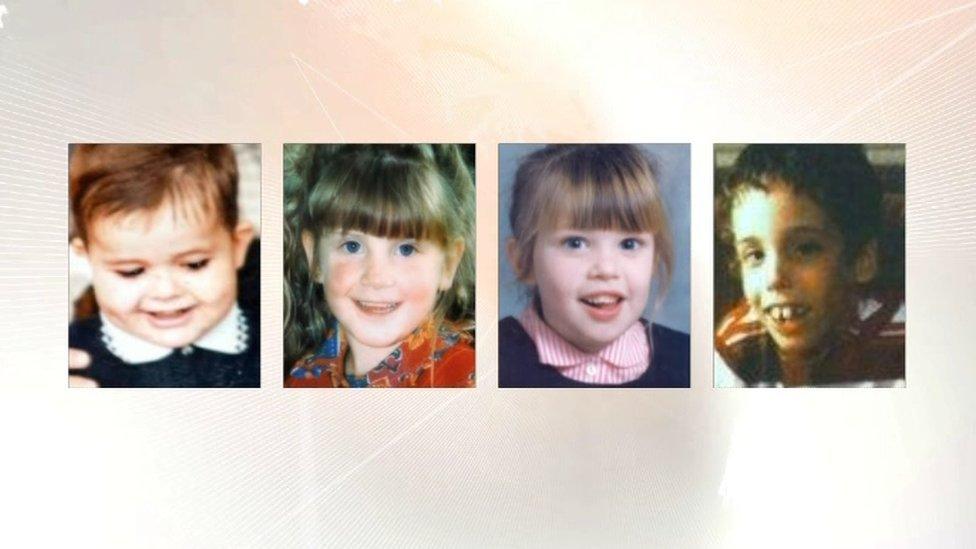GMC to investigate doctors over hyponatraemia child deaths
- Published
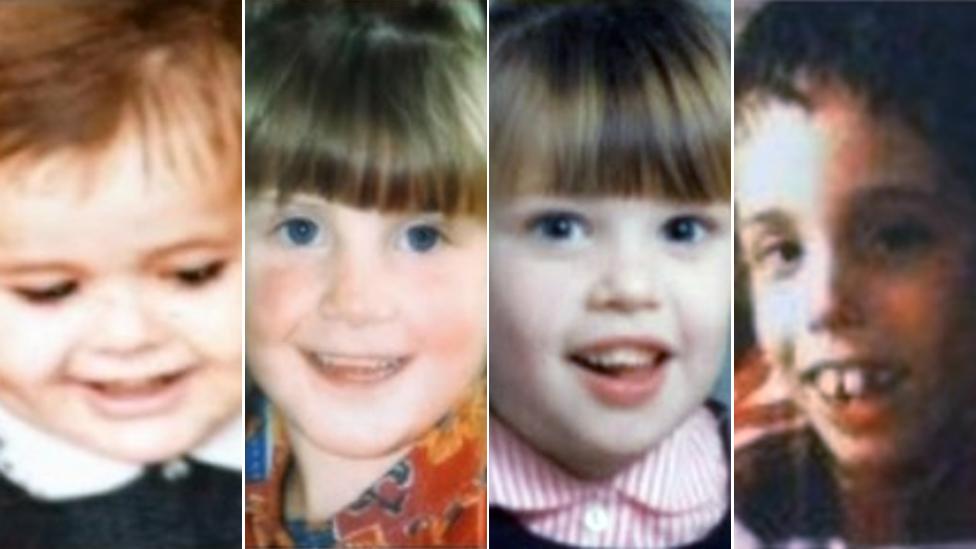
Adam Strain, Raychel Ferguson, Claire Roberts and Conor Mitchell. Lucy Crawford's family chose not to release a photograph
Twenty-four of the doctors criticised by an inquiry into the deaths of five children in Northern Ireland have referred themselves to the General Medical Council (GMC).
All five deaths were due to a shortage of sodium in the bloodstream.
In January, the Hyponatraemia Inquiry said four of the deaths were avoidable and heavily criticised health services.
The GMC said it is examining if there are grounds to take action against any of the doctors named in the report.
'Truth dragged out'
The 14-year inquiry was chaired by Mr Justice O'Hara and his final report was scathing, both of how the families had been treated in the aftermath of the deaths and of medical professionals' attitude to his investigation.
He said that some medical witnesses to the inquiry "had to have the truth dragged out of them".
Mr Justice O'Hara calls on medical professionals to put the public interest first.
Mr O'Hara's damning report made 96 recommendations - the first of which was that a statutory duty of candour be set up, breach of which would be a crime.
This would put a legal duty on doctors to be open and honest with patients about incidents that have caused or have the potential to result in significant harm.
The GMC is the leading regulator of doctors working in the UK. As well as developing policy and guidance for doctors it also is responsible for investigating complaints and the fitness to practice of medical staff.
In its response to the inquiry report the GMC said that while they welcomed the emphasis placed on the duty of candour in the report, they were "not persuaded" that a statutory duty for individual doctors with criminal sanctions attached would be the best way forward.
It said the report highlighted "serious failures in care" of the five young children and levelled "profound criticism" of individual doctors and at the "culture and conduct of the institutions in which they worked."
BBC News NI Health Correspondent Marie-Louise Connolly explains the background to the hyponatraemia inquiry
The GMC's statement also confirmed it had set up a dedicated team to consider whether there were grounds to take action against doctors, 24 of whom had already referred themselves.
The medical regulator also added that even when doctors named in the report had not contacted them yet, they could and would consider whether there were grounds for further investigation and action.
Avoidable deaths
The inquiry examined the circumstances surrounding the deaths of Claire Roberts, Adam Strain, Raychel Ferguson, Lucy Crawford and Conor Mitchell.

Hyponatraemia is a medical condition that occurs when there is a shortage of sodium in the bloodstream.
In his final inquiry report, Mr Justice O'Hara was scathing of how the families at the centre of the inquiry were treated in the aftermath of the deaths of the children.
He said that "doctors and managers cannot be relied on to do the right thing at the right time" and that they had to put the public interest before their own reputation.
A dedicated PSNI team is being established to examine the findings of the inquiry's report.
In April Northern Ireland's Attorney General directed the coroner to open a fresh inquest into the death of nine-year-old Claire Roberts.
- Published8 May 2018

- Published9 May 2018
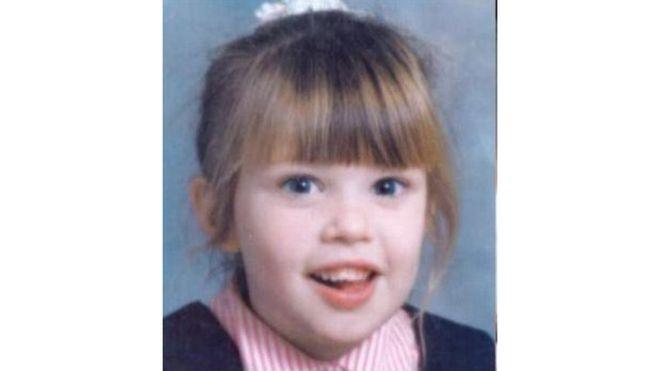
- Published17 April 2018
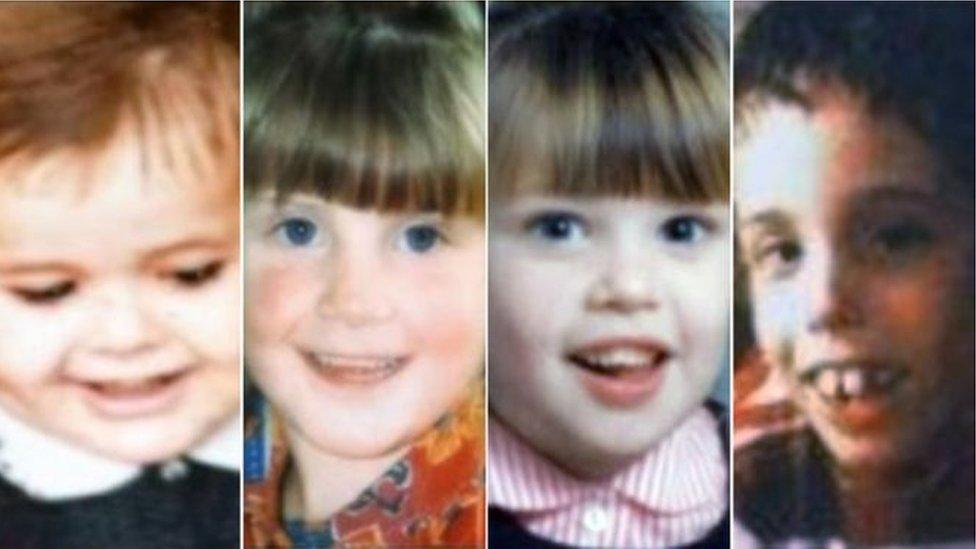
- Published9 April 2018
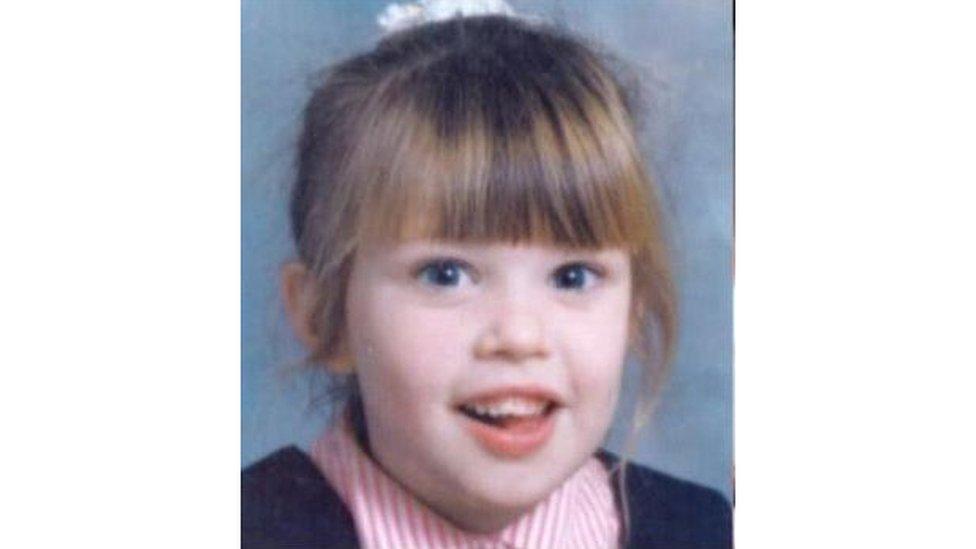
- Published16 March 2018
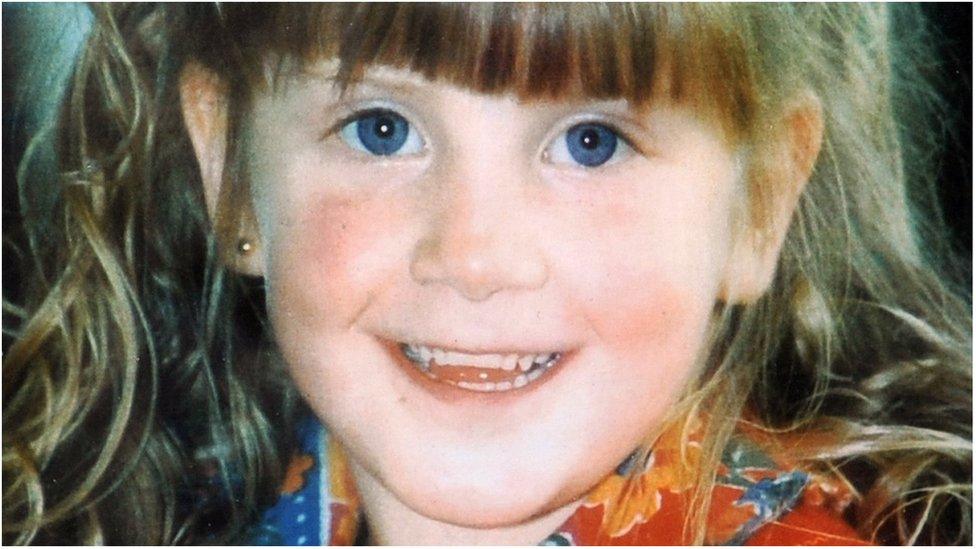
- Published2 February 2018

- Published31 January 2018
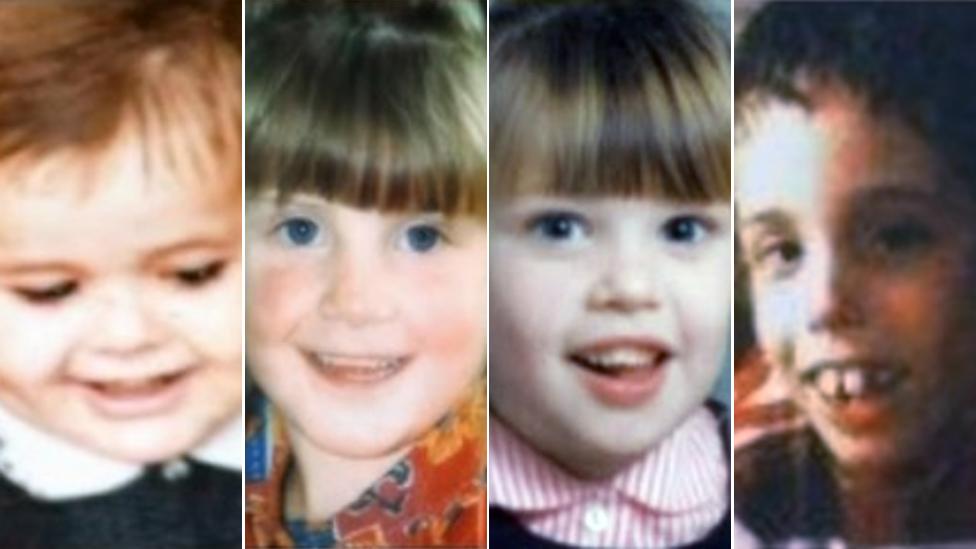
- Published31 January 2018
